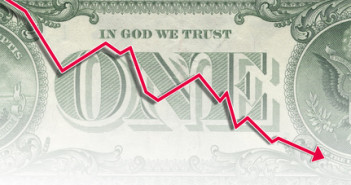Japan’s Prime Minister Noda dissolved the lower house of Parliament overnight, paving the way for elections to be held on December 16. By dissolving the “Dietâ€, drafting of the next fiscal budget will likely be delayed. Government actions to weaken the JPY haven’t been effective. Opposition leader Shinzo Abe actually had a stronger effect on JPY when he called yesterday for unlimited easing. Japan is heading towards its third recession in four years with concerns that the recession may last as long as four quarters instead of two due to the budget delays. The 2013 budget delay is the first since 1993 and this will have a negative impact by springtime. The Japanese fiscal year begins in April. The Bank of Japan meets next week for a two day meeting and most analysts expect the BOJ to pause in adding stimulus ahead of the election. The next meeting would be in December, after the FED meeting and actions by the FED could affect what the BOJ does.
USD/JPY has eased off overnight highs around 81.25 and is currently trading around the 81.00 level. Support for the USD/JPY is seen at 80.85, then 80.60. Technical resistance at 81.25, is followed by further resistance at 81.45.
The EUR is also trading off of its overnight high of 1.2785, nearing its low of 1.2728. EU finance ministers meet next week to continue their discussions on Greece, and yesterday it was announced that the head of the IMF will cut her Asian tour short in order to attend that meeting on November 20. While IMF chief Lagarde and EU finance ministers have had opposite views on Greece, yesterday she stated it was important to focus on the same objective of getting Greece to operate on a sustainable basis.
Later today the markets will focus on President Obama’s meeting with Republican and Democratic leaders of Congress as they begin discussions on the fiscal cliff. The President and the Republicans remain divided on the best way to resolve this problem. The Republican party objects to the President’s proposal of a tax hike.
Members of the FED are beginning to question whether the new policy of open-ended QE3 is going to encourage investors to add risk to their portfolios. As usual, Richmond Fed President Lacker once again urged the FED to stand pat and not ease further. FED Chair Ben Bernanke said he will continue to use all policy tools available to support economic recovery.
Overnight, the Asian equity markets are all negative, and this morning European stock markets are negative as well. DOW Futures are following the markets and are negative as well indicating a lower start to US equities.
I don’t expect to hear any real news out of the meeting today at the White House. If we did, I am sure it would not be positive. The EUR looks to remain rangebound for the day, although action overnight would suggest the downside is the logical move. The currency markets have not reacted to the missile exchanges happening in Israel between the Israeli army and Hamas. As this intensifies, and it looks like it will intensify before it subsides, the currency markets will be affected. The Israeli Sheckel has already weakened trading near the 3.97 level jumping from the 3.94 area.



